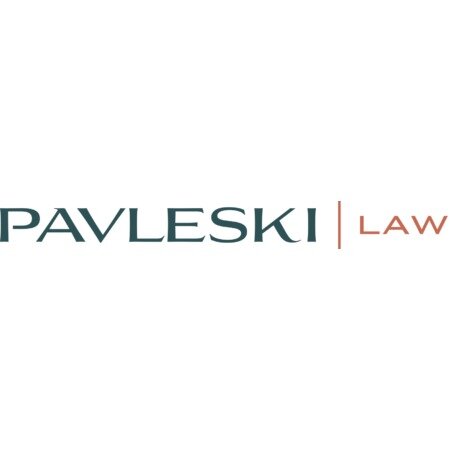Best Elder Abuse Law Lawyers in Serbia
Share your needs with us, get contacted by law firms.
Free. Takes 2 min.
Or refine your search by selecting a city:
List of the best lawyers in Serbia
About Elder Abuse Law in Serbia
Elder abuse law in Serbia is designed to protect older adults from various forms of mistreatment, including physical, emotional, financial, and neglect. The legal framework is intended to offer protection and ensure justice for victims while providing mechanisms for reporting and addressing abuse. Elder abuse can occur in various settings, including homes, care facilities, and in familial relationships. Serbian law incorporates both criminal and civil measures to address and prevent elder abuse, emphasizing the protection of human rights for older individuals.
Why You May Need a Lawyer
There are several scenarios where individuals may require legal assistance concerning elder abuse in Serbia:
- You suspect an elderly family member or friend is being abused or neglected.
- You are an elderly person who has been the victim of abuse or financial exploitation.
- You work in a care facility and have observed signs of abuse or neglect among residents.
- There is a need to pursue legal action to seek damages or protection for an elderly individual.
- You need advice on laws applicable to the care and protection of elder individuals in Serbia.
Local Laws Overview
Serbian law provides several measures to tackle elder abuse, including:
- Criminal Code: The Serbian Criminal Code addresses various forms of abuse, including physical harm, emotional distress, and exploitation, with penalties that may include imprisonment and fines.
- Family Law: Legislation in Serbia includes provisions against domestic violence, which encompasses abuse against elder family members.
- Social Protection Law: Offers protection to vulnerable groups, including the elderly, ensuring access to necessary social services and support.
- Law on Prevention of Domestic Violence: Provides a legal basis for preventing domestic violence, including violence against the elderly, and involves coordinated actions from judiciary, police, and social services.
Frequently Asked Questions
1. What constitutes elder abuse in Serbia?
Elder abuse in Serbia includes physical harm, emotional distress, financial exploitation, neglect, and abandonment of individuals aged 65 and above.
2. How can I report elder abuse?
Reports of elder abuse can be made to the local police, social services, or through specific helplines dedicated to elder abuse issues in Serbia.
3. What are the signs of elder abuse?
Signs include unexplained injuries, sudden behavioral changes, withdrawal from usual activities, and financial anomalies such as missing funds or belongings.
4. Can I pursue legal action against an abuser?
Yes, legal action can be pursued through filing a complaint with the police or initiating a civil lawsuit, possibly resulting in criminal penalties and compensation.
5. Are there protective measures available for elder abuse victims?
Protective measures include restraining orders and support services from governmental and non-governmental organizations aimed at ensuring victim safety.
6. What role do social services play in elder abuse cases?
Social services conduct investigations, provide care interventions, and support victims in coordination with the judicial and law enforcement systems.
7. Are financial institutions required to monitor elder financial abuse?
While not explicitly required to monitor, financial institutions may report suspicious activities related to elder financial abuse and cooperate with investigations.
8. What legal protections exist for caregivers reporting elder abuse?
Caregivers are protected against retaliation when they report abuse, and are encouraged to report any suspicious activities to relevant authorities.
9. How prevalent is elder abuse in Serbia?
While exact statistics can be difficult to determine, elder abuse is a recognized and ongoing concern in Serbia, with efforts underway to improve detection and prevention.
10. What penalties do abusers face under Serbian law?
Penalties range from fines to imprisonment, depending on the severity and nature of the abuse, and are determined by the courts based on evidence and circumstance.
Additional Resources
Individuals seeking more information or assistance can consider reaching out to the following:
- Ministry of Labor, Employment, Veteran and Social Affairs: Oversees social welfare programs and elder protection initiatives.
- Local Centers for Social Work: Provide support and guidance for issues relating to elder protection and abuse.
- Serbian Red Cross: Offers programs and services for the elderly, including those related to health and welfare.
- Domestic Violence Helpline: Provides advice and resources for victims of domestic violence, including elder abuse.
Next Steps
If you need legal assistance concerning elder abuse in Serbia, consider the following steps:
- Contact a lawyer specialized in elder law or family law with experience in elder abuse cases.
- Gather evidence of the abuse, including medical records, financial statements, and witness testimonies, if possible.
- Report any immediate threats to law enforcement or social service agencies.
- Utilize the support services provided by governmental and non-governmental organizations to protect and empower the victim.
Taking timely and decisive action is crucial in addressing and preventing further abuse, and legal professionals can guide you through the complexities of the legal system.
Lawzana helps you find the best lawyers and law firms in Serbia through a curated and pre-screened list of qualified legal professionals. Our platform offers rankings and detailed profiles of attorneys and law firms, allowing you to compare based on practice areas, including Elder Abuse Law, experience, and client feedback.
Each profile includes a description of the firm's areas of practice, client reviews, team members and partners, year of establishment, spoken languages, office locations, contact information, social media presence, and any published articles or resources. Most firms on our platform speak English and are experienced in both local and international legal matters.
Get a quote from top-rated law firms in Serbia — quickly, securely, and without unnecessary hassle.
Disclaimer:
The information provided on this page is for general informational purposes only and does not constitute legal advice. While we strive to ensure the accuracy and relevance of the content, legal information may change over time, and interpretations of the law can vary. You should always consult with a qualified legal professional for advice specific to your situation.
We disclaim all liability for actions taken or not taken based on the content of this page. If you believe any information is incorrect or outdated, please contact us, and we will review and update it where appropriate.
Browse elder abuse law law firms by city in Serbia
Refine your search by selecting a city.













